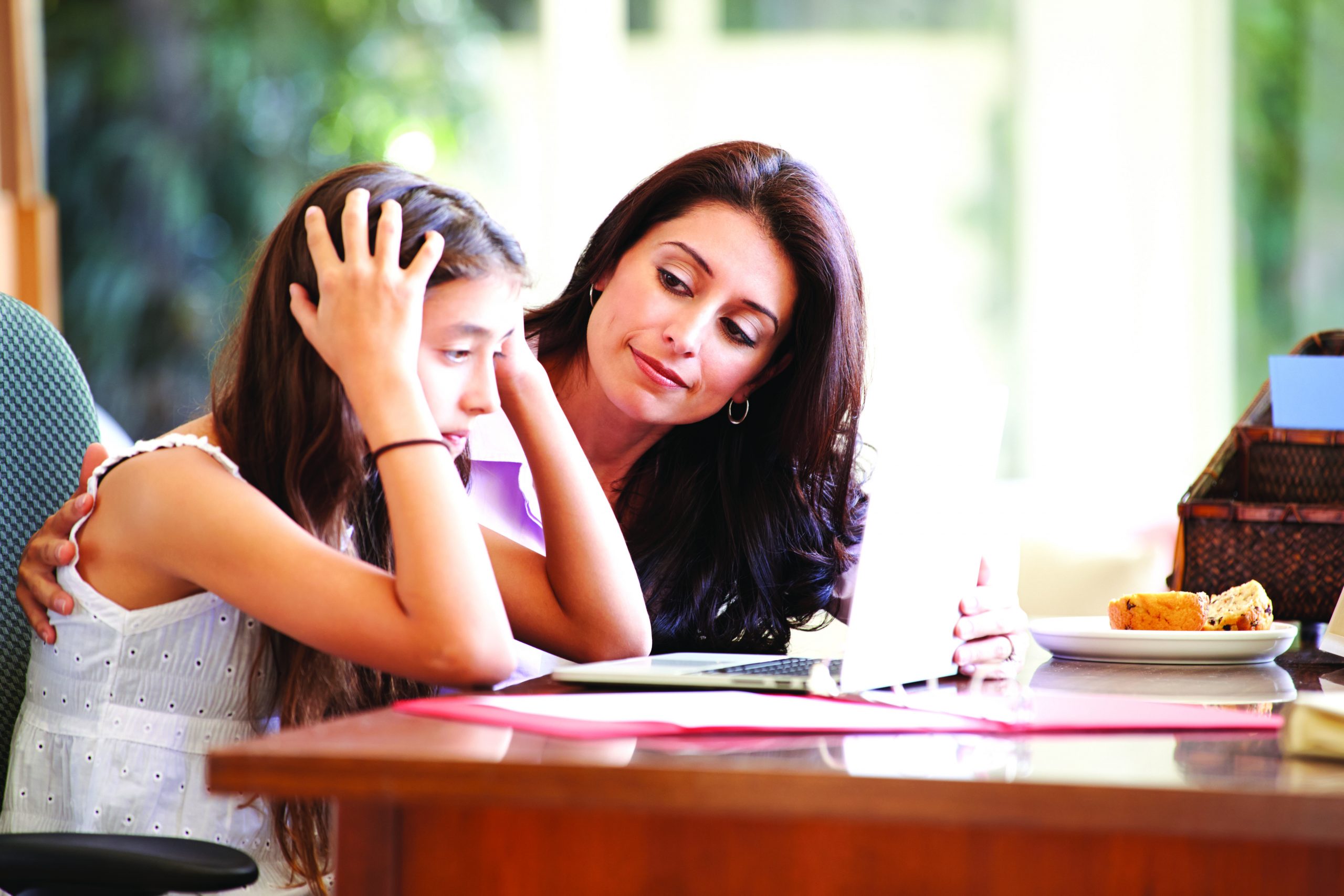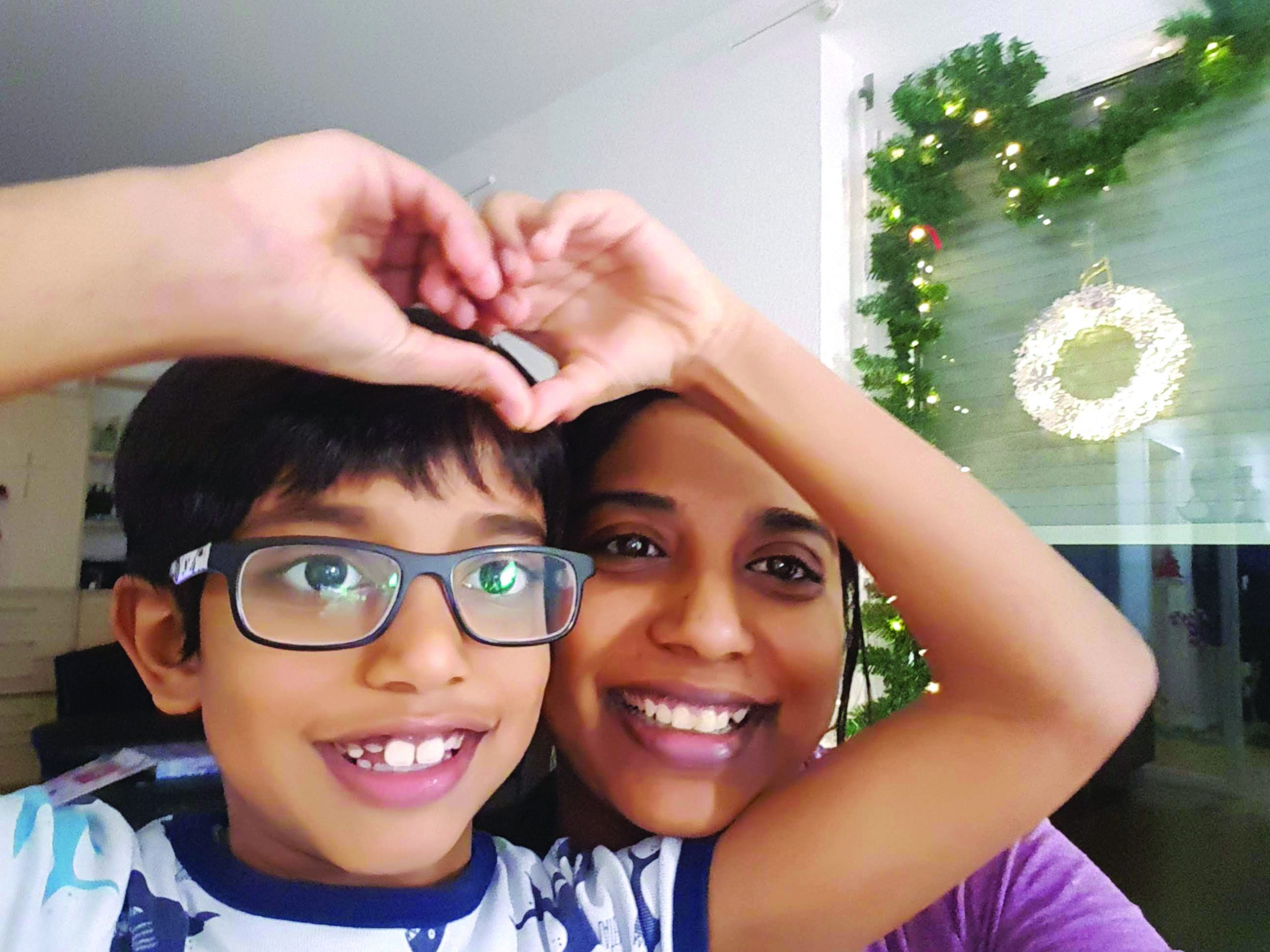There’s a mountain of truth in the old cliche that failure is the stepping stone to success. Therefore, parents should avoid the temptation to scold or reprimand children for failure to meet expectations. Instead, they should use it as an opportunity to build their resilience and character writes Poornima Dilip, Mini P. & Cynthia John

The death by suicide on September 13 of Richa Sinha, a class XI student from Ranchi preparing for NEET (National Eligibility-cum-Entrance Test) exam for admission into one of the country’s much-too-few (703) medical colleges, brought the number of student suicide deaths in Kota (Rajasthan) to 24 this year. This is the highest number of student suicides in five years in Kota, a small town (pop. 1,57,000), which has transformed into India’s most infamous coaching factory for school-leavers preparing to write highly competitive public entrance exams such as NEET, IIT-JEE, CAT among others.
Nor are student suicides restricted to Kota. According to latest data of the National Crime Records Bureau (NCRB), 3,089 children/students nationwide took the extreme step of ending their own lives in 2021, and since 2017, child suicides have increased by 32.15 percent. Although NCRB 2021 data — the latest available — doesn’t disclose the specific reasons behind this alarming increase in student suicides, it does state that out of 10,732 children (below age 18) who died by suicide, 864 took the extreme step because of “failure in examinations”.
The rising tide of student suicides — most student counsellors and child rights activists believe that the NCRB record of 864 under-age children taking their own lives is an under-estimate — has set alarm bells ringing countrywide. In June, ParentsWorld featured a cover story titled ‘Red Alert! Rising Tide of Child & Youth Suicides’ (https://www.educationworld.in/red-alert-rising-tide-of-child-youth-suicides/). In this feature, your editors identified exams-related stress, parental pressure and lack of awareness about non-traditional career options that offer high growth potential, as the prime causes of the rising incidence of student suicides.
However to this list of causes, child psychologists and counsellors advise adding ‘fear of failure’. “It can result in stress, anxiety, low self-esteem, panic attacks, depression and often suicide. Intense fear of failure described as atichyphobia can prompt children to avoid certain situations altogether. For example, it could prompt a child to skip writing an exam, submit a blank paper, or not report for sport events such as a race or game,” says Dr. Mazher Ali, a Hyderabad-based psychiatrist.
According to Dr. Ali, parents need to understand that failure is an essential rite of passage in every child’s growth process. “Failure can happen in many ways — falling while taking baby steps, or while learning to ride a bicycle, or learning to play a tune. These experiences are valuable experiences that build resilience, perseverance and character. There’s a mountain of truth in the old cliche that failure is the stepping stone to success. Therefore, parents should avoid the temptation to scold or reprimand children for failure to meet expectations. Instead, they should use it as an opportunity to toughen them up,” says Dr. Ali.
Way back in 1938, globally renowned and revered children’s author Enid Blyton (1897-1968) wrote: “The best way to treat obstacles is to use them as stepping stones. Laugh at them, tread on them and let them lead you to something better” (Mr. Galliano’s Circus).
Likewise, Dale Carnegie (1888-1955), author of How to Win Friends & Influence People (1936), reportedly the greatest motivational bestseller of all time, observed: “Develop success from failures. Discouragement and failure are two of the surest stepping stones to success.”
This message extolling the virtues of failure as stepping stones to success and character building, is endorsed by more contemporary writers. One among them is Rachel Simmons, an alumna of the blue-chip Vassar and Oxford (UK) universities, who writes in her latest bestseller Enough As She Is (2018): “Think about your biggest mistakes… They probably taught you more courage, strength and wisdom than any success could have.”

Dr. Shekhar Seshadri
Wisdom about how to manage children’s failures and transform them into opportunities to build resilience and character are not the preserve of offshore child psychologists and counsellors. Dr. Shekhar Seshadri, the nationally renowned child/adolescent psychiatrist at the National Institute of Mental Health and Neurosciences (NIMHANS), Bengaluru, for several decades and currently advisor to SAMVAD (Support, Advocacy & Mental Health Interventions for Children in Vulnerable Circumstances and Distress), an initiative of the Union ministry of women and child development, cautions against parents reprimanding children for failure in academic and/or sports/co-curricular endeavours.
“Children always experience a sense of doom, disaster and finality around examinations. This is because outcome is prioritised over process, performance over effort, success over the joy of learning. On the contrary, examinations should be a celebration of learning. If only parents would say, ‘I know you didn’t do well but I’m convinced you worked hard and have understood the material, and that’s enough for me’. Reducing the personhood of a child to studenthood is problematic. A child is much more than a student and acknowledgement of other gifts and qualities significantly reduces the distress of failure. The tyranny of expectations is something that parents would do well to address,” advises Seshadri.
Likewise in her best-selling motivational book, The Gift of Failure (2015), author Jessica Lahey advocates children taking on challenges which could end in failure, as the best way to develop coping and problem-solving skills which will help them manage greater challenges in adulthood. She advises against parents “protecting or shielding children from situations which may end in failure”. This, she says, will reduce their learning opportunities. Instead, she advises parents to support children through failure situations with positive affirmation, and encourage them to learn to take on challenges, knowing full well they may not succeed.
If they dredge their memories, educated middle class parents are likely to recall numerous failure-to-success and rags-to-riches stories they learned in their own coming of age years. For instance, the story of Scotland’s defeated King Robert the Bruce, who watching a spider repeatedly strive to weave its web, drew a lesson from it and routed the British in the Battle of Bannockburn (1314). Then there’s the story of a down-and-out homeless American Ray Kroc, who when arrested for sleeping on a park bench told a magistrate that he was dreaming about the chain of restaurants he planned to build. Kroc made his dream come true and built the McDonald’s chain of fast-food restaurants which are a household name around the world. You could also recount how Winston Churchill, a failed politician relegated to the back benches of Britain’s parliament metamorphosed into the country’s great World War II prime minister.
In our own Indian history, there’s no shortage of challenge and response stories that can be drawn from the Ramayana, Mahabharata and other ancient texts. Also of Mahatma Gandhi, who transformed from a tongue-tied lawyer in his first case in the Bombay high court into the national leader who totally outwitted the masterminds of the British Raj and precipitated the collapse of the mighty British Empire. One could also recount the life story of Dr. Bhim Rao Ambedkar, who suffered unimaginable insults and humiliation because of his low caste — an accident of birth — but pressed on to acquire law degrees from Columbia and London universities and rose to the position of Chairman of the committee that drafted the unique Constitution of India.
 According to Dr. Mazher Ali (quoted earlier), there are numerous ways in which parents can help children manage failure to build resilience and character. “Explain to children that everyone encounters failure at several points in their lives. Failure is a natural part of the process of learning and growing. Parents should share stories of their own setbacks to demonstrate that failure is a common experience. I always advise parents to tell children that failure is never a disgrace. Given parental support, children can learn from their mistakes and improve with effort and perseverance. Praising the effort rather than the outcome will develop a growth mindset,” says Dr. Ali.
According to Dr. Mazher Ali (quoted earlier), there are numerous ways in which parents can help children manage failure to build resilience and character. “Explain to children that everyone encounters failure at several points in their lives. Failure is a natural part of the process of learning and growing. Parents should share stories of their own setbacks to demonstrate that failure is a common experience. I always advise parents to tell children that failure is never a disgrace. Given parental support, children can learn from their mistakes and improve with effort and perseverance. Praising the effort rather than the outcome will develop a growth mindset,” says Dr. Ali.
Jerin Sofia Robinson, a Bengaluru-based homemaker, was confronted with the challenge of her son repeatedly failing his Hindi language exams. “We sat down together and reviewed what we had to do to prepare for the next exam. We discussed ways and means to spend more time on studying the subject, finding a better tutor, and identifying his weak areas. By working together cooperatively without blame-sharing, we developed a plan for improvement. As a result, in recent class tests and exams, his Hindi language marks are steadily improving,” says Robinson.
In this connection, it’s also noteworthy that it’s not just the family that injects shame of failure in children. Feelings of failure, inadequacy and self-doubt are often seeds sown by classmates, teachers, relatives and others. If this problem is persistent, it could drive children to self-harm.
“When my son fared poorly in school, and his school refused to promote him, I decided not to put him through the trauma of repeating the class. I pulled him out of school, and homeschooled him. He began learning animation online out of his own interest. After a while, I encouraged him to join an animation course, and he has joined an institute where he is doing very well. He has decided that this will be his future vocation. I’m now glad he is out of the school system,” says Veena Arora, a Mumbai-based IT consultant.
 Given that contemporary India hosts 1.5 million primary-secondary schools established at great expense over several decades, home-schooling is the last option, and available to a microscopic affluent minority. The more sensible option is to create enabling school and home environments in which children learn meaningfully and joyfully. Therefore, the onus of creating conducive learning environments in which children can thrive devolves upon school managements, teachers and parents, especially the latter.
Given that contemporary India hosts 1.5 million primary-secondary schools established at great expense over several decades, home-schooling is the last option, and available to a microscopic affluent minority. The more sensible option is to create enabling school and home environments in which children learn meaningfully and joyfully. Therefore, the onus of creating conducive learning environments in which children can thrive devolves upon school managements, teachers and parents, especially the latter.
Teachers have to manage and encourage a larger number of children than parents who have greatest influence on children. Consequently, they need to understand that the world has changed and that there are numerous career options other than medicine and engineering available to children and youth.
Therefore, great expectations and pressure to perform well in hyper-competitive entrance exams which generates fear of failure, is unwarranted. In the new millennium and years to come, graphic artists, musicians, dancers and sportspersons can become as prosperous and lead as fulfilling lives as doctors and engineers. Parents need to evolve and create encouraging and enabling home environments in which children can learn and profit from failure.
Withstanding pressure related to failure
Hyderabad-based Dr. Mazher Ali, a psychiatrist with 24 years of experience, suggests ways for parents to help children withstand pressures related to failure.
- Promote a healthy perspective. Teach children that their worth is not solely determined by their achievements. Counsel them that it’s alright to make mistakes and fail in some endeavours.
- Encourage balanced activities. Avoid over-scheduling or placing too much emphasis on a single activity or achievement. Encourage a variety of interests and hobbies to reduce the pressure associated with one area.
- Model coping strategies. Demonstrate positive ways to manage stress and setbacks in your own life. Children learn by observing the adults around them. This in turn promotes the virtue of resilience.
- Teach time management. Help children develop effective time management and organisational skills to reduce academic and extracurricular pressures. Balancing responsibilities will alleviate stress.
- Seek professional help if necessary. If a child is significantly struggling with stress management and failure, consider seeking the guidance of a mental health professional (psychiatrist or psychologist) to provide specialised support and coping strategies.
- Build a supportive network. Encourage children to build strong social connections with friends and family. A support system can help them navigate the inevitable challenges and pressures of life more effectively.
Banishing failure fear
Parents have a natural instinct to protect children from failure. We want them to be happy and successful, and the idea that they might fail at anything could fill us with panic and pain. I remember my deep dismay and despair when my children failed to attain objectives they had set their hearts on. It was difficult to watch my son cry over low marks in a maths test and watch my daughter struggle to compose herself when she wasn’t elected to her school’s students’ council. But in retrospect, I realise that in both cases, they learned a lot from those failures.
Indeed with the benefit of hindsight, I believe I have learned more from their and my failures than from our successes. Today I often remind my children that a better word for failure is “learning experience”. I truly believe all children should experience some failures in their school years.
Some important life lessons that children learn from failures are:
Resilience and persistence. When children fail, they have to confront the issue, pick themselves up and move on. Dealing with low-stakes failures in school — disappointing test scores, not getting selected for a team, losing a race or a match — helps them to learn that failure is part and parcel of everyday life, not the end of the world. Indeed, failure is usually the precondition of success as children learn to pick themselves up from the floor and set about achieving their goals with new determination and zest.
Initiative and risk taking. No great initiative can be undertaken without risk. People too afraid of failure won’t ever take any risks. To teach our children to become enterprising decision makers and leaders, we need to encourage them to take risks. This way they learn that failure is usually a temporary setback. Responsible, enabling parents constantly remind their children that failures are learning experiences, not disasters.
Empathy. When children fail, they develop the important life skill of empathy for others who try but fail. They learn what it feels like to lose, to be rejected, to not meet expectations. This helps them relate to others with tact, empathy and kindness.
Learning is a process, and failure is part of that process. When children experience failure, given counselling, support and advice, they become better and stronger people.
Against this backdrop, when confronted with a crushed, tearful child who has experienced what seems to her a monumental failure, how can parents enable a child to emerge better and stronger from the experience? Here are some pointers:
- Think carefully about how you contextualise a child’s failure. Instead of becoming determined to protect children from failure, help them re-frame their failures as learning experiences. Tell your children that experience of failure is a universal condition and that even the world’s greatest achievers — Mahatma Gandhi, Bill Gates, Albert Einstein, the Wright brothers, Isaac Newton and Socrates — suffered failure before they emerged as strong and successful individuals.
- When your child comes home with a disappointing test or exam score, discuss how she can do better next time. Instead of focusing on why she went wrong, focus on what the child can learn from the experience and how she can improve in the future. In any case, praise her effort.
- Encourage children to take calculated risks. For example, encourage her to opt for tougher and more testing subjects or problems. Tell your child that you admire risk-taking capability rather than easy options, which may get her better grades. Praise initiative, risk-taking and effort. Teach your child to embrace challenges and opportunities instead of running away from them.
(Maya Thiagarajan is author of Beyond the Tiger Mom: East-West Parenting for the Global Age)























